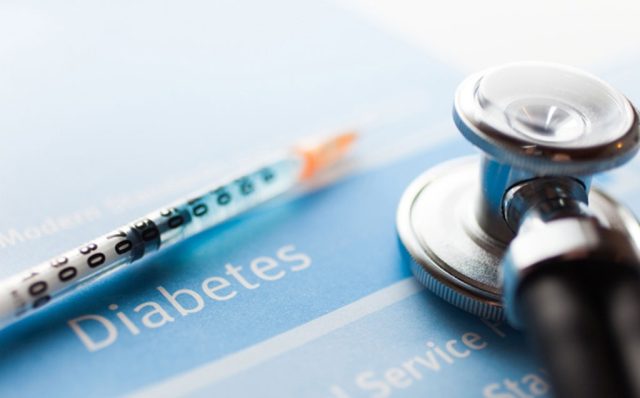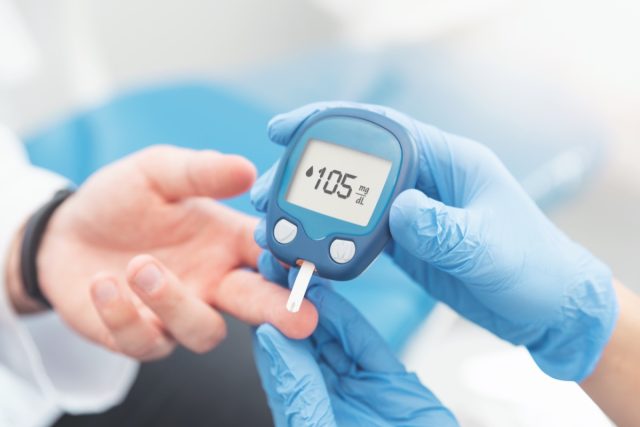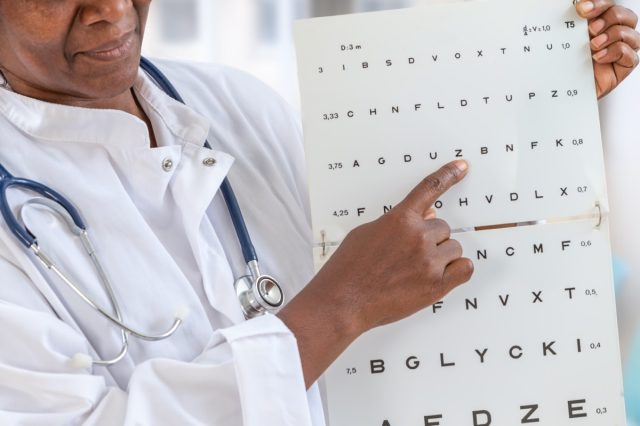In 2013 Tom Hanks revealed on the Late Show with David Letterman he has type 2 diabetes. “I went to the doctor, and he said, ‘You know those high blood sugar numbers you’ve been dealing with since you were 36? Well, you’ve graduated! You’ve got type 2 diabetes, young man.'” A few years later Hanks admitted his lifestyle caused it. “I’m part of the lazy American generation that has blindly kept dancing through the party and now finds ourselves with a malady,” the actor explained in an interview with Radio Times. He added, “I was heavy. You’ve seen me in movies, you know what I looked like,” he continued. “I was a total idiot.” The Oscar winner isn’t alone in his battle with the disease. An average of over 37 million Americans have diabetes, according to the Centers for Disease for Control and Prevention, but that number may not be totally accurate since the disease can oftentimes go undiagnosed. Dr. Tomi Mitchell, a Board-Certified Family Physician with Holistic Wellness Strategies treats patients regularly for diabetes and told Eat This, Not That! Health that, “Diabetes is a serious condition that can lead to several health complications if left untreated. However, many people with diabetes don’t even know they have it. If you are concerned that you may be at risk, read below.” As always, please consult with your physician for medical advice—and to ensure your health and the health of others, don’t miss these Sure Signs You’ve Already Had COVID.


Dr. Mitchell explains, “Diabetes is a condition in which the body cannot properly store and use sugar. The body breaks down most of the food we eat into glucose, or sugar, which it then uses for energy. Glucose is a primary source of fuel for the body. Our digestive system breaks down carbohydrates in food into glucose when we eat. After that, glucose enters our bloodstream and begins to rise. A hormone called insulin then takes the glucose from our blood into our cells, where it can be used as fuel for our body or stored for later use. With diabetes, either there isn’t enough insulin in our body, or the insulin isn’t working the way it should take the sugar from our blood into our cells, or both. When there is too much sugar in our blood, it can cause serious problems. Diabetes can damage the eyes, kidneys, nerves, and blood vessels. It can also lead to heart disease, stroke, and blindness. People with diabetes also have an increased risk of developing infections and gum disease. There are two main types of diabetes: type 1 and type 2. Type 1 diabetes is when your body does not make insulin at all, and type 2 diabetes is when your body does not make enough insulin or when the insulin does not work correctly.”


According to Dr. Mitchell, “Diabetes is a chronic disease that occurs when the pancreas does not produce enough insulin or the body cannot effectively use the insulin it produces. Insulin is a hormone that regulates blood sugar. When blood sugar levels are high, the pancreas releases insulin to lower them. In people with diabetes, either the pancreas doesn’t produce enough insulin (type 1 diabetes) or the cells in the body don’t respond appropriately to insulin (type 2 diabetes), causing an accumulation of blood sugar. Over time, high blood sugar levels can damage nerves and blood vessels, leading to complications such as heart disease, stroke, kidney disease, and blindness. The exact cause of type 1 diabetes is unknown, but it is thought to be autoimmune. Type 2 diabetes is caused by a combination of genetic and lifestyle factors.”


“Though diabetes is often thought of as a disease that only affects older adults, the truth is that anyone can develop diabetes. Type 2 diabetes is on the rise in children and young adults,” Dr. Mitchell emphasizes. “There are several factors that can put someone at risk for developing diabetes. For example, those who are overweight or obese are at greater risk, as are those who have a family history of the disease. People of certain ethnicities, such as African Americans, Hispanics, and Native Americans, are also at increased risk. And finally, those who have high blood pressure or high cholesterol levels are also at greater risk of developing diabetes. Though anyone can develop the disease, by understanding the risk factors, we can help to prevent the development of diabetes.”


Dr. Mitchell shares, “Diabetes is a serious disease that can profoundly impact both the quality and quantity of a person’s life. Left uncontrolled, diabetes can lead to several serious complications, including heart disease, stroke, kidney failure, blindness, and amputation. Each year, diabetes kills more people than AIDS and breast cancer combined. There are currently more than 37 million people living with diabetes in the United States alone. Of those 37 million, it is estimated that nearly six million do not even know they have the disease. While there is no cure for diabetes, it can be controlled through diet, exercise, and medication. With proper care and treatment, people with diabetes can enjoy long and healthy lives.”


“If you need to go to the bathroom more often than usual, it could signify that your body is trying to get rid of excess sugar in your urine,” says Dr. Mitchel


According to Dr. Mitchell, “When you have diabetes, your body cannot properly process sugar in the blood. This leads to high blood sugar levels, which can cause several issues, including increased urination. Usually, the kidneys filter out excess sugar and excrete it in the urine. However, when blood sugar levels are too high, the kidneys cannot keep up with the filtering, and the sugar is excreted along with extra water, leading to increased urination. In addition, high blood sugar levels can damage the nerves that control the bladder muscles, leading to urinary incontinence and further increasing the need to urinate. While increased urination can be annoying and disruptive, it is essential to remember that it is a common symptom of diabetes and does not indicate any serious health problems. However, if you are experiencing other symptoms such as fever or pain while urinating, it is essential to consult a healthcare professional.”


Dr. Mitchell explains, “When you have diabetes, your body cannot use the sugar in your blood for energy. This is because your body either doesn’t make enough insulin (a hormone that helps cells absorb sugar), or the cells in your body become resistant to insulin. When this happens, sugar builds up in your blood instead of being used for energy. Over time, this can lead to serious health problems, including heart disease, nerve damage, and kidney disease. One of the earliest signs of diabetes is feeling tired all the time. When there’s too much sugar in your blood, it starts to damage small blood vessels. This damage prevents nutrients and oxygen from reaching your cells, making you feel tired. If you’re feeling tired all the time and you think you might have diabetes, it’s essential to see a doctor to get tested and treated as soon as possible.”


“When most people think of diabetes, they think of high blood sugar levels,” shares Dr. Mitchell. “However, diabetes can also cause a condition called diabetic retinopathy, which damages the blood vessels in the retina. Over time, this damage can lead to blurred vision. In severe cases, diabetic retinopathy can even cause blindness. While the exact mechanism is not fully understood, it is thought that high blood sugar levels cause the body to produce inflammatory chemicals that damage the blood vessels in the retina. Diabetic retinopathy usually develops slowly over time and may not cause any symptoms initially. However, as the condition progresses, patients may begin to experience blurred vision or floaters in their field of vision. If left untreated, diabetic retinopathy can eventually lead to blindness. Fortunately, diabetic retinopathy is treatable if it is caught early enough. Therefore, regular eye exams are essential for people with diabetes, as they can help detect the early signs of the condition. If diabetic retinopathy is diagnosed early, treatments such as laser surgery can be used to slow down its progression and preserve vision.”


Dr. Mitchell explains, “Despite increased appetite, many people with diabetes lose weight due to the body’s inability to process glucose appropriately. If you are experiencing any of these symptoms, it is essential to see a doctor for a diagnosis. Early treatment is vital to managing diabetes and reducing the risk of severe health complications. If you experience any of these symptoms, it’s essential to see a doctor as soon as possible for a diagnosis. Early detection and treatment are crucial for managing diabetes and reducing the risk of severe health problems.” And to protect your life and the lives of others, don’t visit any of these 35 Places You’re Most Likely to Catch COVID.
from WordPress https://ift.tt/wyAlRBO
via IFTTT










No comments:
Post a Comment